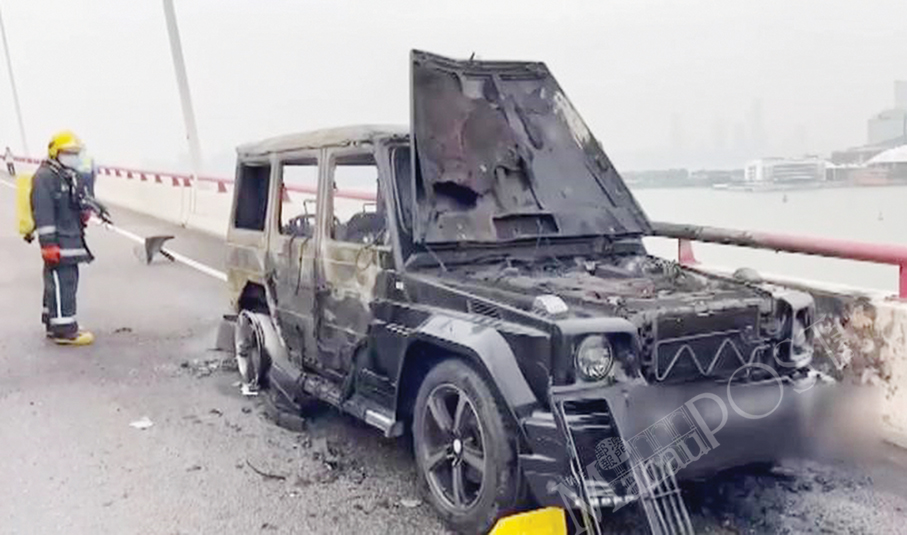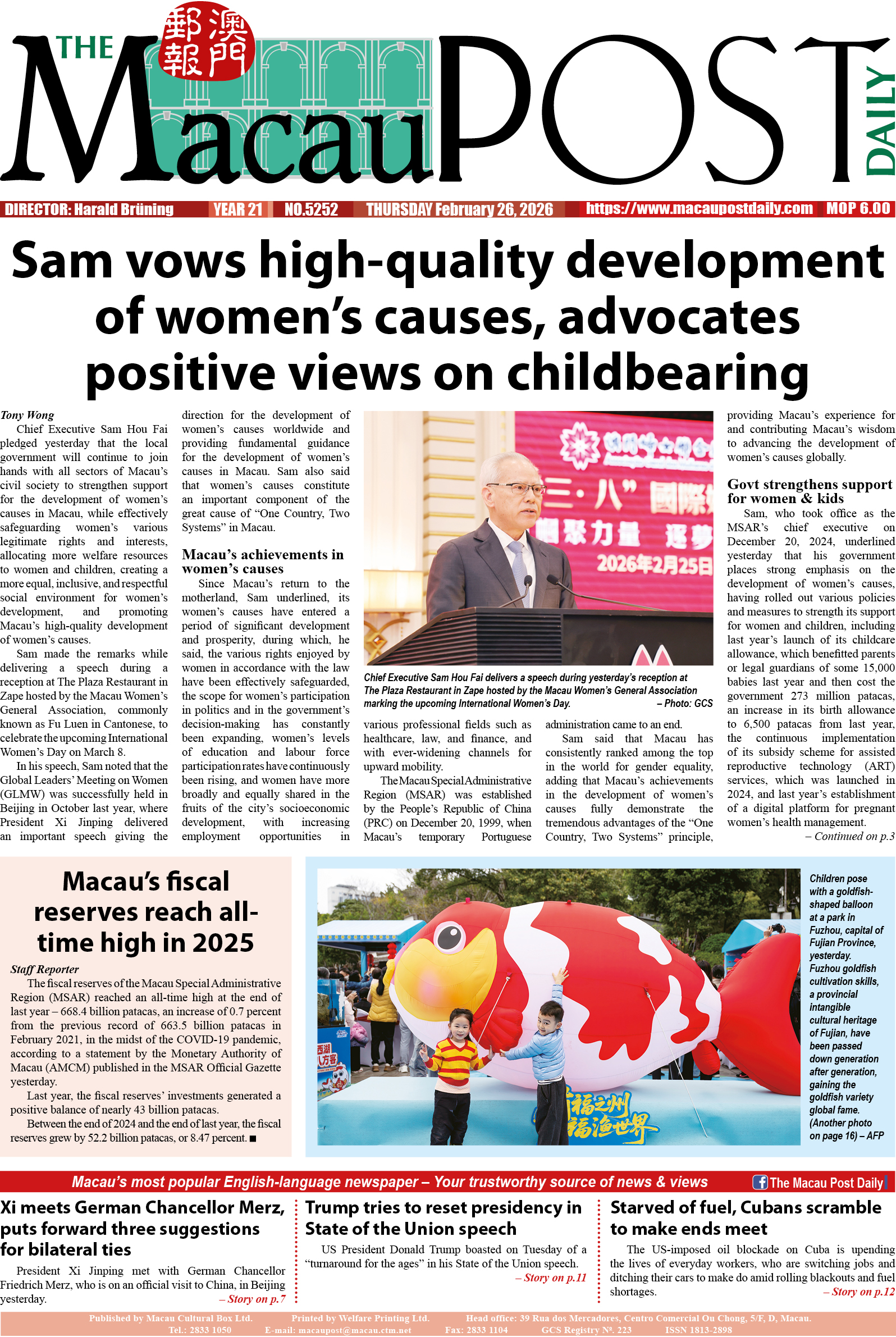Chief Executive Ho Iat Seng told lawmakers yesterday that his government was sparing no effort to attract a greater number of tourists to visit Macau, adding that there will be further promotional events in cities in the south-west of the country.
Ho made the remarks during a question-and-answer session at the Legislative Assembly’s hemicycle yesterday afternoon.
The government has set up an incentive scheme for visitors from the mainland to enjoy promotional offers while visiting Macau. Consumption vouchers issued to visitors under the scheme has boosted tourist spending in Macau, Ho pointed out.
The government is considering extending the incentive scheme to countries in Southeast Asia and elsewhere in Asia, provided the COVID-19 situation improves globally and entry curbs by different countries and regions have been eased, Ho said.
‘Optimised’ consumption benefits
Ho also mentioned the government’s “optimised” economic support plan granting residents consumption benefits through digital payment methods. Regarding lawmakers’ questions about the plan, which was announced by the government on Monday, potentially leading to increases in prices of products eligible for purchase under the scheme, Ho noted the government will grant residents consumption benefits worth 8,000 patacas. He also noted that inflation as measured by the consumer price index (CPI) was 0.81 percent last year.
The economic support plan benefitting both permanent and non-permanent residents will run in the second half of this year, consisting of a 5,000-pataca start-up fund and a 3,000-pataca immediate discount grant.
The Economic and Technological Development Bureau (DSEDT) and the Consumer Council will closely monitor any change in product prices, the chief executive pledged.
The economic support plan aims to help residents cope with the impact of the COVID-19 pandemic on their livelihoods.
On the human resources development front, Ho also said the government’s Talents Development Committee would further strengthen its work. Ho said that Macau needed human resources that could propel the development of relevant industries. He mentioned as an example what would be required to set up a bond market: there would be a greater number of accountants, auditors and other professional staff required in order to support such development. This, however, would provide many opportunities for Macau’s young people.
Ho underlined the government’s determination to improve Macau’s human resources. He said Macau needed to be ready to import skilled professionals – which might require fresh support measures locally due to intense competition from neighbouring cities for such resources – and the cultivation of local talents.
When asked about the local development of a digital currency, Ho said the government was closely following the trend seen in that direction in countries and regions around the world. In the meantime, the local government would study, in conjunction with the People’s Bank of China (PBOC), the feasibility of issuing a digital currency in Macau.
Ho said the government was planning to revise the relevant regulations which would allow the issuing of non-physical currency in Macau, taking into account the city’s long-term development needs.
Regarding the development of the traditional Chinese medicine (TCM) sector, Ho noted that the government has drafted a bill on TCM pharmaceutics and proprietary registration requirements. He pointed out that the bill is being reviewed by the legislature. Once the bill is passed, the government would set up a bureau on the supervision of TCM products.
Ho stressed that advancing the development of healthcare services, financial services, the science and technological sector, and the cultural sector, as well as the TCM sector, was of utmost importance for the government.
Regarding Macau’s political development, Ho said the government had no plans to propose to the central government any amendments to the existing methods of electing the chief executive and a certain number of the members of the Legislative Assembly. He emphasised that the central government has the lead role in such matters, he added.
During the session, Ho answered questions raised by 30 lawmakers of the 33-member legislature. Topics discussed included COVID-19 epidemic-control work, measures to spur the economy, issues concerning people’s livelihoods, education, housing, employment of local residents, construction projects, a job-matching service for prospective employees, development of the sports sector, and regional cooperation. – MPD, GCS








